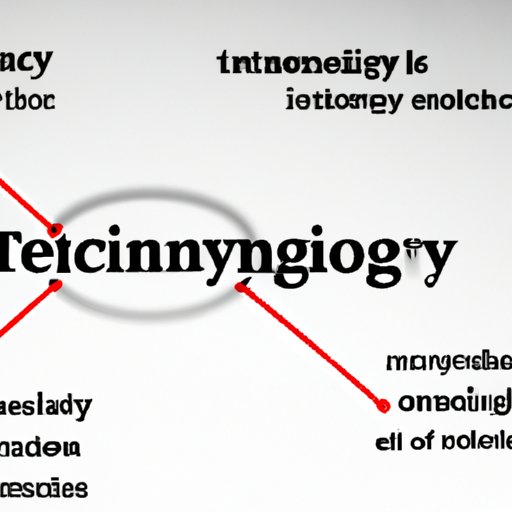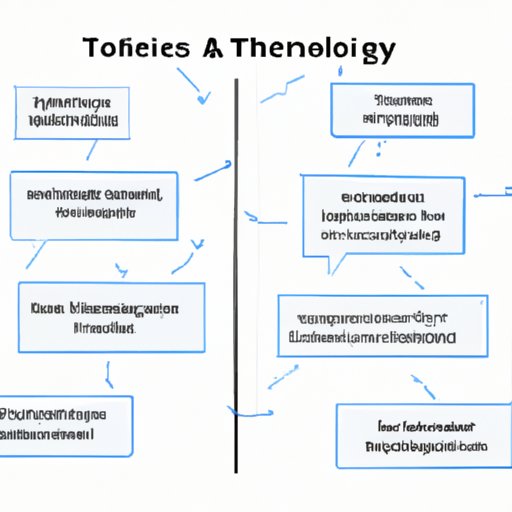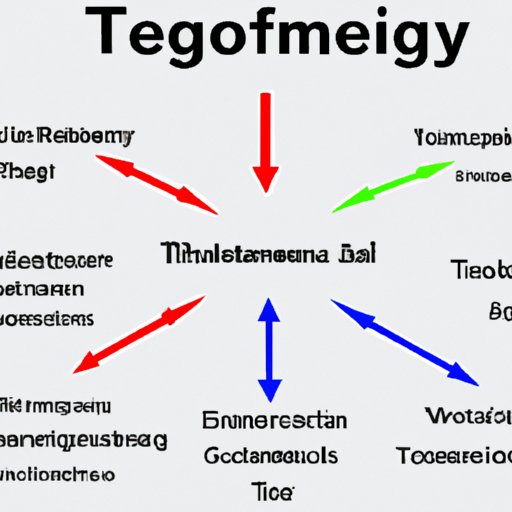Introduction
A scientific theory is an explanation or model based on observation, experimentation, and reasoning that can be used to explain and predict natural phenomena. The purpose of a scientific theory is to provide a logical and consistent framework for understanding a range of phenomena. In other words, it is a well-substantiated explanation of some aspect of the natural world that is acquired through the scientific method and repeatedly tested and confirmed through observation and experimentation.

Definition of a Scientific Theory
The term “theory” has different meanings in different contexts. In everyday language, a theory is simply an idea or hunch about how something works. In the context of science, however, a theory is much more than that: it is an organized set of principles or ideas that explains and predicts a phenomenon. A scientific theory is not just an educated guess or speculation but rather an explanation that is backed up by evidence that has been gathered through careful observation and experimentation.
Overview of Different Types of Scientific Theories
There are several different types of scientific theories including physical theories, biological theories, psychological theories, and social theories. Physical theories explain the behavior of matter and energy and the fundamental forces of nature such as gravity and electromagnetism. Biological theories attempt to explain the behavior of living organisms and the mechanisms of evolution. Psychological theories attempt to explain the behavior of humans and other animals. Social theories attempt to explain the behavior of groups of individuals and the structure of society.
Role of Scientific Theory in Science
Scientific theories play a vital role in the advancement of scientific knowledge. They provide a framework for understanding and predicting natural phenomena. When combined with data from observations and experiments, scientific theories help scientists to identify patterns and draw conclusions about the natural world. They also allow scientists to make predictions and test hypotheses. In short, scientific theories are essential for advancing scientific knowledge.
How Scientific Theories are Formulated
The process of formulating a scientific theory begins with observations and experiments. Scientists observe the natural world and collect data that can be used to identify patterns and draw conclusions. This data is then used to develop hypotheses which are testable predictions about the natural world. If these hypotheses are supported by further observations and experiments, they can be refined and developed into a scientific theory. According to Professor Richard Dawkins, “A scientific theory is a conceptual framework that explains a wide range of observations and experimental results. It is always open to modification in the light of new evidence.”
Examples of Scientific Theories
One of the most famous scientific theories is Charles Darwin’s theory of evolution. This theory explains how species have evolved over time through natural selection. Another example is Albert Einstein’s theory of relativity which explains the behavior of space, time, and gravity. These two theories are examples of how scientific theories can explain and predict natural phenomena.

Testing and Proving Scientific Theories
Testing and proving scientific theories is an important part of the scientific process. Scientific theories must be tested against real-world data and existing scientific knowledge in order to determine their validity. This involves making observations, conducting experiments, and analyzing the data to see if it supports or refutes the theory. If the data supports the theory, then it is accepted as valid; if not, then the theory must be modified or discarded.

Comparing Scientific Theories to Other Types of Theories
It is important to distinguish scientific theories from other types of theories. Philosophical theories, for example, are based on abstract concepts and are not testable. Political theories are based on opinion and cannot be tested objectively. In contrast, scientific theories are based on evidence and can be tested and verified through observation and experimentation.
Conclusion
In conclusion, a scientific theory is an explanation or model based on observation, experimentation, and reasoning that can be used to explain and predict natural phenomena. Scientific theories play a vital role in the advancement of scientific knowledge and are formulated through observations, experiments, and hypothesis testing. Finally, scientific theories are distinguished from other types of theories by their reliance on evidence and ability to be tested and verified. Understanding scientific theories is essential for advancing scientific knowledge and can provide valuable insight into the natural world. Further research should focus on developing new theories and testing existing theories.
(Note: Is this article not meeting your expectations? Do you have knowledge or insights to share? Unlock new opportunities and expand your reach by joining our authors team. Click Registration to join us and share your expertise with our readers.)
